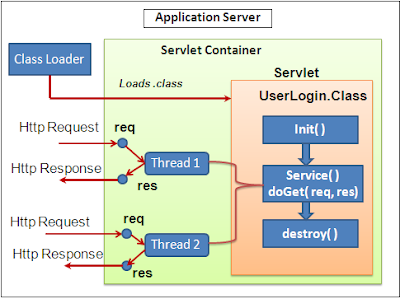반복문
-
switch-case 문에서 String 을 비교하는 방법
public class SwitchStudy { public static void main(String[] args) { String value = "AAA"; switch (value) { case "AAA": System.out.println("A"); case "BBB": System.out.println("B"); } } } INVOKEVIRTUAL java/lang/String.hashCode ()I LOOKUPSWITCH 64545: L2 65538: L3 default: L4String hashCode 를 생성해 int 를 비교한다.
- 숫자들이 정렬되어 있다.
- switch-case 문의 case 가 많을 경우 작은 숫자부터 큰 숫자를 비교하는 게 가장 빠르다.
-
for 문 내부에서 주의할 점
-
불필요한 size() 메서드를 반복해서 호출하지 않는다.
ArrayList<Object> list = new ArrayList<>(); // list.size(); for (int i = 0; i < list.size(); i++) { System.out.println("do something"); } -
반복 구문에서 필요 없는 반복 피한다.
-
static
- 전역에서 접근할 수 있는 값임을 항시 주의하자.
- static 은 GC 대상이 아니다.
- 메모리 릭
- Collection 객체를 전역변수로 선언하면 하고 이 객체에 지속적으로 데이터가 쌓인다면 메모리릭이 발생할 수 있다.
Reflection
-
reflection 관련 클래스를 사용해 클래스 정보를 얻는 것은 유용하나 Class 인스턴스화를 해가며 반드시 필요한 작업인가? 고민을 해봐라
예시
this.getClass().getName()getClass()메서드를 호출하면 Class 객체를 만들고, 그 개체의 이름을 가져오는 메서드를 수행하는 시간과 메모리를 사용할 뿐이다.- 많이 호출하면 문제가 발생할 수 있으니 고려하고 사용하자
synchronized
interrupt()이 메서드는 해당 스레드가block되거나 특정 상태에서만 작동한다.
synchronized는 각각의 객체에 대한 동기화를 하는 것이다. 아래 코드는amount클래스 변수에 대한 동기화가 되지 않는다.
아래처럼public class Contribution{ private static int amount = 0; public synchronized void denote(){ amount++; } public int getTotal(){ return amount; } }denote()메서드도static을 선언해야amount클래스 변수 동기화가 된다.public class Contribution{ private static int amount = 0; public static synchronized void denote(){ amount++; } public int getTotal(){ return amount; } }- JVM 에서 synchronized 가 동작하는 방법
- Java Monitor 를 제공한다.
- 모니터는 lock 이나 unlocked 둘 중 하나이며, 동일한 모니터에 진입한 여러 스레드들 중에서 한 시점에는 단 하나의 스레드만 모니터를 가질 수 있다. 모니터를 가진 스레드만 모니터에 의해서 보호되는 영역에 들어가서 작업을 할 수 있다.
- 동기화는 비용이 큰 작업이니 꼭 필요한 상황에서만 사용하자
IO, NIO
- IO 에서 버퍼을 활용하면 IO 처리 속도를 개선할 수 있다.
- 불필요하게 IO 를 반복해서 호출하는 경우가 있다. 주의하자
- IO 의 프로세스
- 파일 읽기 요청
- 메서드 OS 커널에 파일 읽기 요청
- 커널 하드 디스크로부터 파일 읽어서 자신의 커널 영역의 버퍼에 복사
- 이 버퍼를 JVM 으로 복사
- JVM 스트림 관리 클래스로 데이터 처리
- NIO 는 3번 작업을 직접 통제하여 시간을 더 단축할 수 있게 한 것이다.
- DirectByteBuffer : Singleton 패턴을 사용해 해당 JVM 에는 하나의 객체만 생성하도록 권장한다. 그 이유는 아래와 같다.

allocateDirect() 를 호출하면 DirectByteBuffer 를 생성한다.
이 메서드는 데이터를 JVM 에 올려서 사용하는 것이 아니라, OS 메모리에 할당된 메모리를 Native로 한 JNI로 처리하는 DirectByteBuffer 객체를 생성한다.
필요할 때마다 매번 생성해서는 안된다.

reserveMemory() 메서드에서는 JVM 에 할당된 메모리보다 더 많은 메모리를 요구할 경우 System.gc() 를 호출하도록 되어 있다.

JSP 와 서블릿, Spring

서블릿은 요청당 새로 생성되는게 아니라 생성해둔 서블릭 객체를 사용하니
static 변수나 멤버 변수를 선언하여 지속적으로 변경하는 작업은 피하자.
